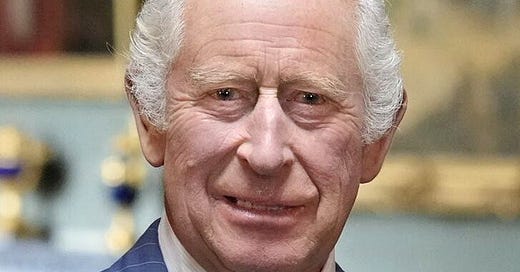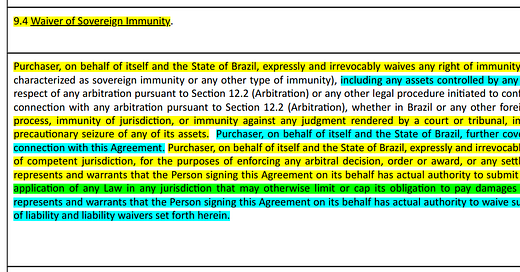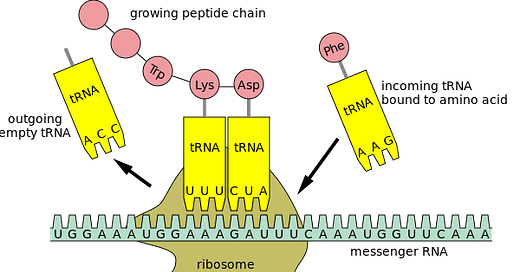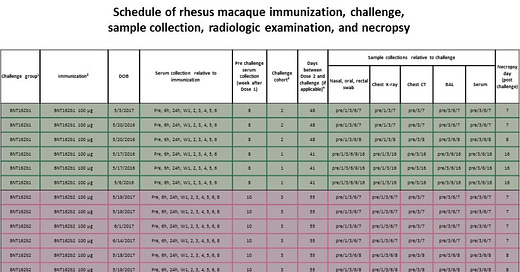
Discover more from Sense of Awareness
TYRANNICAL UK, THE MONARCH'S OATH, AND THE WHO
Why did King Charles omitted two words during his coronation, and what are the implications?
As Anna de Buisseret has pointed out on X/Twitter, during his coronation, the oath that King Charles swore upon was NOT according to the statutory wording as set out in the Coronation Oath Act 1688!
The two words which were omitted from the first part of the Oath are where it reads “… Statutes in Parliament” are “…AGREED ON...”.
What is it SO HUGE? Because the omission of "AGREED ON" is a subtle but SIGNIFICANT change in interpretation, ESPECIALLY when it comes to INTERNATIONAL TREATIES.
First, here is the text that Charles was supposed to swear upon: "Will You solemnely Promise and Sweare to Governe the People of this Kingdome of England and the Dominions thereto belonging according to the Statutes in Parlyament Agreed on and the Laws and Customs of the same?"
He DID NOT SAY "agreed on". Here is what this could potentially imply:
1. STATUTES WITHOUT PARLIAMENTARY CONSENSUS:
In the original oath, "Statutes in Parlyament Agreed On" emphasizes that the laws the monarch is required to govern by must be agreed upon by Parliament, reflecting the legislative process and parliamentary sovereignty. By omitting "Agreed On," it could potentially be interpreted as THE MONARCH MUST FOLLOW ANY STATUES PASSED BY PARLIMENT REGARDLESS OF IF THEY HAVE PASSED THROUGH THE NORMAL LEGISLATIVE PROCESS with agreement. This might suggest an openness to govern (to allow the government) to run according to laws that are not necessarily the product of full parliamentary debate or consensus.
2. MONATCH'S DISCRETION OVER LAWS:
Without the phrase "Agreed On," the monarch might be perceived as having slightly more interpretative discretion regarding which statutes to govern by. It could suggest a loosening of the requirement to only follow statutes that were formally agreed upon through the established parliamentary process, GIVING THE MONRACH MORE LEEWAYS IN INTERPRETING OR SELECTING WHICH STATUTES ARE BINDING.
3. POTENTIAL WEAKENING OF PARLIMENTARY SOVEREIGNTY:
The omission might undermine the emphasis on Parliament's role in law making, weakening the principle of parliamentary sovereignty. The original phrasing binds the monarch to govern according to statutes that have gone through the full process of being "agreed on" in Parliament, highlighting the centrality of Parliament's role in making laws. Removing those words could potentially imply that THE MONRACH IS LESS CONSTRAINED BY THE REQUIREMENT THAT LAWS MUST BE FULLY AGREED UPON BY PARLIMENT, GIVING AN EDGE TO THE EXECUTIVE POWER (GOVERNMENT).
4. INTERNATIONAL TREATIES:
This is the BIG ONE! When it comes to international treaties, there are two phases which omitting the two words could impact:
4.1 Increased Government Leeway in Treaty Negotiations:
4.1.1 Less parliamentary scrutiny:
While the Constitutional Reform and Governance Act 2010 requires treaties to be laid before Parliament, the government could attempt to bypass this scrutiny in some exceptional cases, relying on the royal prerogative to push through treaties without full parliamentary engagement. Omitting "AGREED ON" might be interpreted as giving the government more flexibility in governing without explicit parliamentary agreement in some cases, such as emergency international agreements.
4.1.2 Faster ratification without proper debate:
this might allow treaties to be signed and implemented more swiftly, with less oversight or debate in Parliament.
4.2 Signing of Controversial Treaties:
THE GOVERNMENT CAN, USING THE ROYAL PREROGATIVE, PUSH THROUGH AN INTERNATIONAL TREATY THAT CONFLICTS WITH EXISTING DOMESTIC LAW or is deeply unpopular, knowing that parliamentary scrutiny might be bypassed or weakened. Some concerns might include:
4.2.1 Controversial trade or defence agreements:
If the government signs treaties that drastically alter the UK’s trade, defence, or environmental policies (e.g. WHO), the government might attempt to implement them more easily by bypassing Parliament.
4.2.2 Treaties with long-term consequences:
This could also mean TREATIES THAT BIND THE UK TO LONG-TERM INTERNATIONALO OBLIGATIONS could be ratified without thorough parliamentary debate or input.
4.3 - Monarch as a "Rubber Stamp" for Government's Actions:
The omission of "AGREED ON" might suggest a shift in focus, where the monarch is perceived as being more aligned with the government’s will, rather than bound by statutes "agreed on" by Parliament. In theory, this could ALLOW A GOVERNMENT that controls the executive and has strong influence over the monarch's actions TO PUSH THROUGH TREATIES MORE EASILY, even in the face of parliamentary dissent. While this would be highly controversial, the government might push THE MONRACH to act as a "RUBBER STAMP" for its actions.
4.4 Undermining Parliamentary Sovereignty Over Time:
A more long-term, systemic impact of omitting "AGREED ON" could be the gradual erosion of parliamentary sovereignty in international matters. If the role of parliamentary consent in statute-making is weakened, IT COULD WEAKEN THE PARLIMENT'S ROLE IN TREATY RATIFICATION AND IMPLEMENTATION. THE RISK, then, is that the UK GOVERNMENT MIGHT NEGOTIATE AND RATIFY TREATIES WITHOUT ENSURING REBUST DEMOCRATIC PROCESSES, leading to:
4.4.1 INTERNATIONAL AGREEMENTS WITHOUT ADEQUATE LEGISLATIVE OVERSIGHT:
Governments might use royal prerogative powers to enter into international agreements without sufficient parliamentary input, thereby undermining the democratic process.
4.4.2 PRECEDENT FOR REDUCED SCRUTINY IN OTHER AREAS:
If international treaties can be more easily ratified without full parliamentary involvement, this might set a precedent for reducing parliamentary oversight in other areas, further weakening checks and balances.
CONCLUSION:
The omission of "AGREED ON" could symbolically signal a slight shift in the balance of power. It may be interpreted as allowing a broader interpretation of laws or weakening the emphasis on Parliament's role in law making, and when it comes to international treaties. Even though the modern constitutional monarchy's framework is supposed to ensures that the monarch's powers are highly restricted, and any significant change to their role would likely be contested and require more than just a subtle alteration in the Coronation Oath, the REAL impact is the fact that it gives the monarch the ability to give the government the ability to bypass parliamentary processes, and in by doing so, evaporating its role.
(the above analysis is based on information gathered via a series of ChatGPT prompts)














Charles IS NOT THE MONARCH OF THE UK..
UK is not a land it is a fiction, a corporation.
Instead Charles was crowned with and EMPORERS CROWN!
Research will show he is a fake monarch so was Elizabeth and few others.
They EL-(worshipping) ites, serve Mamon, BA'al and Satan, we have been duped so wake up now and throw these imposters in the gutter hwere they belong. Nasty lizards and not human even.
Crowns are their invention and we don't have to give our power away like sheep to the slaughter of Chem trials, fluoridated water, vaccines and poisoned food sources. Take back your power, people, do not consent do not lay silent (consent) speak up and dissent!!
Thank you. The monarchies have always been scoundrels. It doesn't matter from which country they originated.
Do what the French did chop of their heads.
Charles is a fiend, no different to blokes like Gates and those that attend the WEF or UN meetings